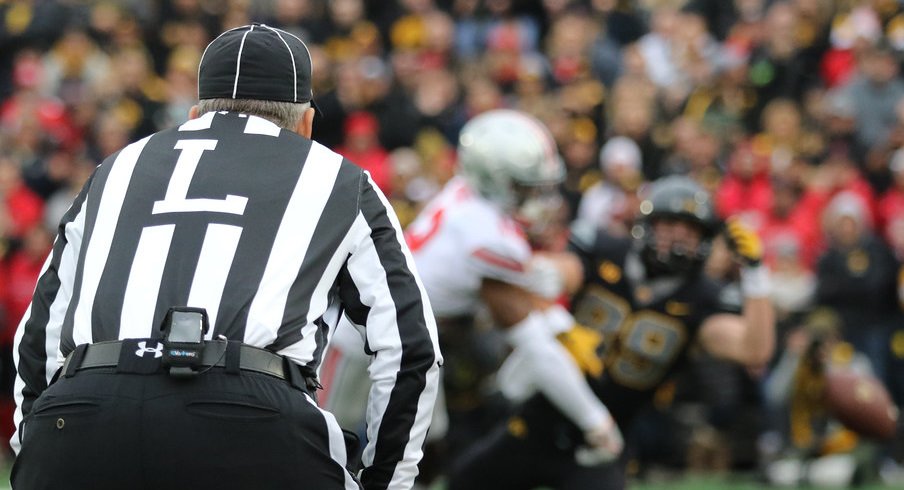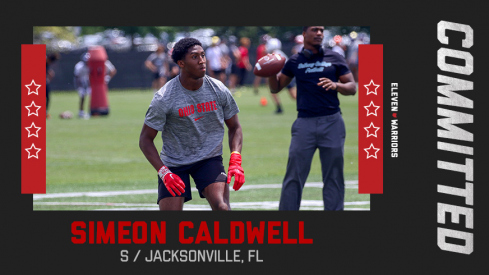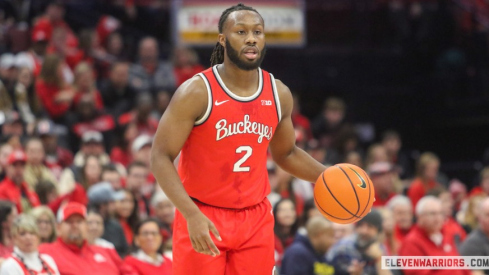Ohio State adds another top-100 safety as Simeon Caldwell commits to the Buckeyes.
One of my favorite things to reflect upon when it comes to this whole NIL business is exactly how pissed College Johnny would've been about student athletes getting paid. My freshman year at Ohio State was in 2003, a set of words that is now physically painful to type, and Troy Smith was just a scant few years away from taking a 500 dollar handshake from a booster and royally pissing me off. How dare he take an extremely nominal amount of money and jeopardize my enjoyment... I mean, his eligibility like that?!?
In retrospect the correct response should've been "Who the hell cares, also maybe pay more attention into what went on with this Strauss guy, I don't know. Not hearing great things about Sandusky or Nassar, either."
I wasn't aware of all that; I just wanted everything about college football to stay the same, and that meant stubbornly adhering to an outdated concept of amateurism until it became painfully obvious that I shouldn't.
And now that NIL has been in full force for basically a week, it's incredible how much I barely notice it. There will be an uptick in Instagram posts from college athletes that say "#ad" and they'll appear in commercials on television (no, not the commercials they've always been in, other commercials) and that's pretty much it. There could be larger implications for college athletics down the line that we can't foresee, but it is kind of remarkable how normal this all feels 200 hours after the NCAA pushed the big red button.
It has happened before!
Not quite as dramatically, but I want to briefly draw you back to a time when college football was again at a crossroads filled with hand-wringing about a change to how the game is understood.
Many thought a few years ago that adding instant replay would make the game better and that the officials wouldn't settle outcomes. Nothing could be further from the truth; it has made officials less competent and takes away the accountability they have to the fans and the game.
Yeah, that's right, instant replay sucks! Boo to this technological innovation that's been around since literally the 1960's and the NFL had been using for decades by the time that super Not Mad op-ed was written in 2009!
What's funny about this is absolutely not that we all now acknowledge that instant replay is some infallible curative to what ails college football. In fact, it's the opposite: fans, players, and coaches all have an implicit understanding that sometimes replay doesn't do diddly-squat to clarify a damn thing and in fact can make the situation even more confused. But despite some legitimate and occasionally weird gripes with instant replay as a concept, it isn't going to go away because the potential benefits (overturning obviously wrong calls) outweigh the inevitable screw ups and arguments (not overturning obviously wrong calls).
In short, instant replay has become an accepted part of the college football ecosystem because... well, we wanted it.
Specifically, the Big Ten wanted it.
This entire game, a 2002 matchup that saw Michigan take down the Nittany Lions by three points in overtime (itself another big change in college football), was a gigantic endorsement for instant replay, and the play above is just the most egregious example of many.
The missed call forced Penn State to punt with 43 seconds left. If the referees made the correct call, Penn State would have been in field-goal range. [...]
Those calls, along with others around the conference, were part of a string that caused change. The Big Ten instituted a pilot program the next season to look into a replay system and became the first conference to implement it in 2004 with the NCAA’s approval.
And so they did, and everyone was happy forever. And by "happy forever" I mean that a cottage industry emerged dedicated to dissecting every single controversial call from every possible angle, which you can verify for yourself by typing "Ohio State Clemson catch or fumble" into a YouTube search bar.
The hundreds of valid corrections made by instant replay over the years aren't going to stop people from complaining about its failures, in much the same way that the very obvious benefits of NIL won't stop people from pointing out its flaws the first time a player skips a bowl game to record an ad for a food truck that sells poutine tacos or some dumb gross thing.
Which is fine, as long as we understand that change within college sports is inevitable. It's up to us to either bury our heads in the sand about it, or decide how beneficial we want that change to be.


